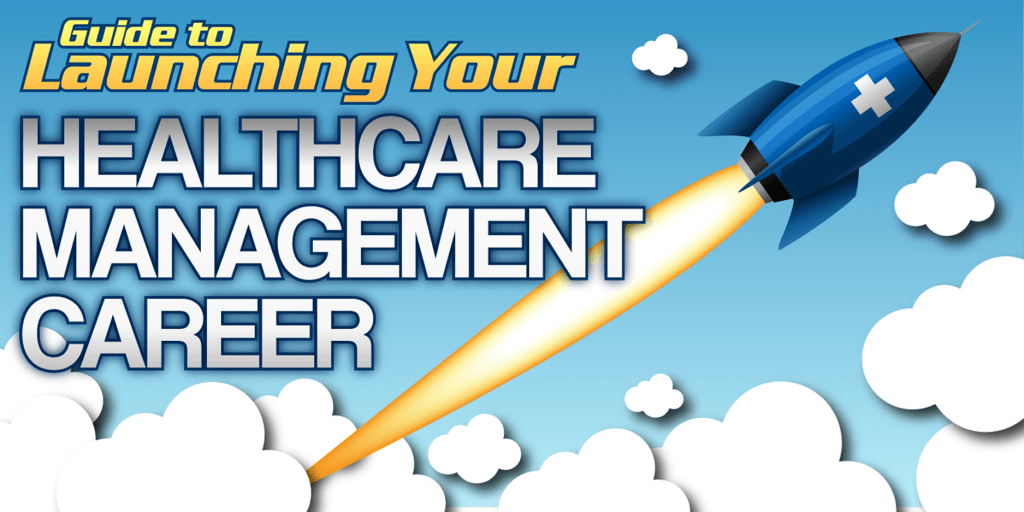
By: Kristen Fescoe
If you have a strong desire to help others coupled with an interest in the business end of the health care industry, a career as a health care manager might be for you. Health care management is an exciting and rapidly growing area of the health care industry that is ideal for those individuals who like the idea of working in health care but do not want to provide direct patient care. This area of health care allows you to be a part of the helping community by enhancing the business side of medicine.
According to the United States Bureau of Labor Statistics Occupational Handbook, the field of healthcare administration and management is expected to see tremendous growth in the next ten years. It is anticipated that 73,300 new jobs as health care managers at various levels will be available by the year 2020. With such a huge increase, more qualified candidates will be needed to fill these positions.
While some health care managers can obtain a position with an undergraduate degree, it is preferable to obtain a graduate degree in the field. Graduates of the many online and on-campus health care management degree programs will have the flexibility to choose where they would like to work, in locations ranging from hospitals to doctors offices and pharmaceutical companies to government agencies. The field of health care management is wide open and full of flexibility and opportunity for excited individuals who want to work in the health care Industry.
About the Author:
After earning a bachelor of arts in psychology from Rutgers University and then a master of science in clinical and forensic psychology from Drexel University, Kristen Fescoe began a career as a therapist at two prisons in Philadelphia. At the same time she volunteered as a rape crisis counselor, also in Philadelphia. After a few years in the field she accepted a teaching position at a local college where she currently teaches psychology courses. Kristen began writing in college and still enjoys her work as a writer, editor, professor, and mother.
Table of Contents:
Chapter 1: What is Health Care Management?
Chapter 2: Understanding the Changes to the Health Care Industry
Chapter 3: What Traits Will Make Me a Great Health Care Manager?
Chapter 4: Educational Requirements and Options
Chapter 5: Top 10 Programs in the United States
Chapter 6: Top 10 Scholarship Opportunities
Chapter 7: Affiliations, Organizations and Certifications
Chapter 8: Top 10 Available Position Opportunities Upon Graduation
Chapter 9: Finding the Right Job
Chapter 10: Top 10 States to Work as a Health Care Manager
Chapter 11: Additional Resources
A health care manager is an individual who is responsible for planning, directing and coordinating health or medical services. Health care managers work in hospitals, clinics, insurance companies, rehabilitation facilities, private practices, skilled nursing care facilities, research and academic settings and many other direct and indirect healthcare settings. A health care manager works alongside direct care providers to help create and expand health care policies, improve the quality of care, support care providers as the face of health care evolves and work towards a positive healthcare delivery system.

Health care managers can also work at many varying levels of an organization. They may be at the entry level or they may be at the senior level and focus more on policy and regulations. A bachelor’s level health care manager can work at the entry-level alongside the direct care providers and other health care managers. A health care manager with a master’s or doctoral degree will typically find employment at the more senior level of management. There are an array of settings, levels and focus for these professionals in today’s healthcare system. This allows flexibility for each HCM to find an ideal position to suit their interests, experience and strengths. For more information on the many career paths within the field of health care management, please visit:
- Bureau of Labor Statistics Occupational Handbook
- Explore Health Careers
- A Day in the Life of a Healthcare Administrator
- How to Become a Healthcare Administrator: Overview

In the past, a small portion of what a health care manager was responsible for was keeping abreast of changes to health care policy and law. Because the laws were slow to change, this portion of the job was minimal. In recent years policy changes and reform have become a new way of life for health care workers. With this change, came a shift in responsibilities for health care managers across the country. Keeping up with and addressing policy changes has become a larger portion of what many health care managers are responsible for. While many health care management positions in the current market are more involved in direct care than policy creation, even direct care is being affected by healthcare reform. It is important for all providers, direct or indirect, to take these changes into consideration when both creating policy and providing care.

One of the reasons that the field of health care management is rising so dramatically is due to the changes in health care. One of the causes for these changes is the impending retirement of the “Baby-Boom Generation.” As more and more Baby Boomers enter their retirement years, many will become medically dependent upon the Medicare System for their health care benefits. This means that a large number of people will be flooding the various health care markets, creating an increasing number of new positions. The second cause for this growth and evolution is the passage and implementation of “ObamaCare.” This referendum requires all Americans to have health care coverage. This means that an additional large number of health care consumers will be added to the Marketplace. As hospitals, medical practices, specialty care centers and other Direct Medical Care Facilities grow so quickly, the number of people who will be required to manage the medical care and growth will also grow. Additionally, there is a general trend towards the employment of health care managers. In the past there may have been a handful of such employees at any large medical corporation, pharmaceutical company or hospital. As more and more undergraduate and graduate programs began training individuals for the specific practice of managing in a health care setting, the trend of hiring health care managers has steadily increased. This shift towards medical health care managers has shifted the entire face of health care and how it is delivered. For more information on these trends, visit:
- American College of Healthcare Executives: Healthcare Reform
- Embracing Change: The healthcare industry focuses on new growth drivers and leadership requirements
- Harvard Business School: Management’s Role in Reforming Health Care
- Health Affairs Blog
- Health Care Reform: Views From The Hospital Executive Suite
- Healthcare.gov
- Managing Change in Healthcare
- US News and World Report: 12 Baby Boomer Retirement Trends

The qualities that make someone an excellent health care manager depends largely upon the area of management you choose to enter. The skill set for people who manage a hospital will be very different from those who manage in a smaller, more intimate doctor’s office. However, it is important for all health care managers to possess a number of very important qualities.
First, those interested in becoming health care managers must have great leadership skills. These managers are leaders who will be responsible for making important changes to how health care is delivered. This requires a great deal of leadership ability, analytical thinking, problem-solving ability and commitment. Health care managers are often people who have a great deal of passion for helping others. In order to help institute change and lead an organization, it is imperative to have the zeal for making things happen.
Another very important quality is organization. Health care is an evolving field, therefore the leaders in this field must be organized enough to stay on top of the progression and change.
A third very important quality is an interest in medicine and healthcare. While candidates may not work directly with the population they service, it is important to focus on the goal – excellent healthcare delivery.
By understanding the nuances of the healthcare and medical fields a health care manager can create change for the better. For more detailed information on what traits will boost your career as a health care manager, please visit:
- 10 Traits of Top Healthcare Leaders
- What Attributes Make a Good Healthcare Manager
- 15 Skills You Need to Land A Job In Healthcare Management
- Leadership in Healthcare Management
- Do I Have What It Takes to Become a Healthcare Administrator


There are many educational avenues to put you on the path to becoming a health care manager. Those looking to become health care managers can earn a bachelor’s degree in a variety of majors, a master’s degree, a master’s of business administration, a master’s of public health, a doctoral degree, a healthcare management certification, and a variety of other joint and concurrent degree’s. Which degree an individual pursues depends upon their educational and experiential background as well as what path of health care management they hope to achieve. For a medical doctor who would like to better manager his or her own practice, a certification would be an ideal fit. For someone who has worked as a nurse or practitioner but would like to move in the direction of management, a master’s level degree would likely be ideal. It traditionally takes four years to earn a bachelor’s degree in health care management. It takes an additional two to four years for a master’s degree after completion of a bachelor’s degree. To obtain a doctoral degree most candidates will spend about eight to ten years in undergraduate and graduate training. For each background and each career path there is a perfect degree option available.
- Department of Public Health: Healthcare Administration Programs
- American College of Healthcare Executives: Which Degree Should I Pursue
- What’s the difference between an MS, an MBA and an MHA?
- Campus Explorer: Medical and Health Services Managers Overview
- Commission on Accreditation of Healthcare Management Education


US News and World Report compile lists each year outlining the very best colleges and universities throughout the United States. In addition to the well-known “Best Colleges” list, there are program specific ranking lists that are also generated each year. The following ten programs were named the “Top 10 Graduate Training Programs in Health Care Management.”
- University of Michigan — Ann Arbor, Michigan – Ranked #1
- University of Minnesota – Twin Cities – Minneapolis, Minnesota – Ranked #2
- University of North Carolina – Chapel Hill, North Carolina – Ranked #3
- University of Pennsylvania – Wharton – Philadelphia, Pennsylvania – Ranked #4
- University of Alabama – Birmingham, Alabama – Tied for #5 Spot
- Virginia Commonwealth – Richmond, Virginia – Tied for #5 Spot
- Northwestern University – Kellogg – Evanston, Illinois – Ranked #7
- University of Washington – Seattle, Washington – Ranked #8
- Rush University – Chicago, Illinois – Tied for #9 Spot
- Saint Louis University – Saint Louis, Missouri – Tied for #9 Spot
Throughout the United States there are hundreds of undergraduate and graduate programs offering many different degree options for health care management careers. Earning a degree from a school who has been named on this ranking list will increase your options when it comes time to secure a job.
For more top programs in this area please visit:
- Top 20 Degree Programs for Master’s of Business Administration with a Specialization in Healthcare Management
- Top 20 Online Bachelor’s Degree Programs in Healthcare Management

As the need for qualified health care managers continues to grow, more academic programs are offering training programs in this field. However, not everyone has the economic means to take on the debt associated with a college education, specifically a graduate degree. According to the Peterson’s Guide to Education, the annual tuition for a graduate degree in health care management at a public college or university is nearly $30,000 and at private schools nearly $40,000. What is important to note is that according to the American Census Bureau, those earning a graduate degree as a health care manager can earn, over the course of a lifetime, more than $400,000 more than someone with just a bachelor’s degree. So how can the average person afford the cost of a graduate education? Students may apply for loans, which will be paid back upon graduation, but an excellent option is to apply for scholarship money. Each year, in the United States millions of scholarships dollars go unclaimed. Some of the best scholarships available to students pursuing a career in health care management include:
- Albert W. Dent Graduate Student Scholarship – $5,000 annually – The goal of this scholarship is to provide financial aid to minority students pursuing a career in healthcare management at the graduate level.
- The Bachrach Family Scholarship for Excellence in Health Care Administration – $1,000 to $5,000 annually – In order to apply for this scholarship, students must be enrolled in a graduate program in Healthcare Administration and have a current academic standing of a 3.0 GPA or better. Students must have career interests that will lead to a position in medical practice administration.
- Bill and Mary Russell Scholarship – $500 annually – The Bill and Mary Russell Scholarship Fund provides financial assistance for those pursuing educational opportunities toward a career in nursing or a health care field (clinical or patient care).
- Campus Safety, Health, and Environmental Management Association (CSHEMA) Scholarship Award – $2,000 annually – The Campus Safety, Health, and Environmental Management Association (CSHEMA) offers an annual scholarship to encourage the study of environmental and occupational health, safety, and related disciplines and is open to all college undergraduate and graduate students in all majors/disciplines.
- David A. Winston Health Policy Scholarship – $10,000 annually – The goal of the David A. Winston Health Policy Scholarship is to help promote high quality individuals trained in healthcare policy at the state and federal level.
- The Elliott C. Roberts Scholarship – $1,000 annually – The Elliott C. Roberts Scholarship is available to first and second year graduate students who are pursuing degrees in healthcare administration or comparable degree program (MBA, MPH, MHA, MPA, MSN or BSN).
- Foster G. McGaw Graduate Student Scholarship – $5,000 annually – The Foundation of the American College of Healthcare Executives (ACHE) founded the Foster G. McGaw Scholarship to honor the founder of the American Hospital Supply Corporation. This scholarship offers recipients financial aid assistance in a healthcare management graduate program, in order to offset tuition costs, student loans and expenses.
- The Gates Millennium Scholars Program – Varies Depending Upon Need – The Gates Millennium Scholars (GMS) Program selects 1,000 talented students each year to receive a “good-through-graduation” scholarship to use at any college or university of their choice.
- Harry J. Harwick Scholarship – $5,000 annually – The Harry J. Harwick Scholarship was created for students in a graduate program accredited by the Commission on Accreditation of Healthcare Management Education (CAHME) or an undergraduate program that is a member of the Association of University Programs in Health Administration (AUPHA).
- A list of 25 Great Scholarships for Healthcare Management Students


One of the best ways that health care managers and administrators can stay at the top of their field is by connecting with other professionals through professional organization and affiliation networks. These allow them to make connections with other professionals, learn new information relevant to the field, continue their education and gather information about the practice, policy and implementation of health care management. Depending upon whether a professional works in a hospital, nursing care facility, advocacy organization or other healthcare setting, specific organizations will apply. It is important for health care managers to make these connections and stay plugged in to what is happening throughout the field. These are also excellent resources for students pursuing a career in this growing field. By making these professionals connections early in your academic career, you will have a leg up when the time comes to find a job or advance within your organization. Some of the most important associations and networks for health care managers include:
- American Association of Healthcare Administrative Management (AAHAM)
- American College of Healthcare Executives (ACHE)
- Association for Healthcare Administrative Professionals

For professionals with a degree in health care management, the options are nearly limitless in where and how they can use their professional degree. With options ranging from research and academics to private practice and hospitals, health care managers can choose the fit that is right for them. Some of the most popular positions for someone holding a degree in healthcare management are administrators in hospitals, ambulatory care, nursing and residential care facilities and positions in governmental agencies. There are also less traditional opportunities such as work within agencies working towards social change, advocacy groups, pharmaceutical companies, clinics, local, state or federal governmental agencies, as well as a host of other facilities and agencies. Some resources to help outline some of the many areas of opportunity include:
- Bureau of Labor Statistics: Occupational Outlook Handbook
- Healthcare Management Careers
- Allied Health Schools
- Health Care Career Options for Everyone
- Career Options for an MHA
The Top 10 Areas of Employment for those with a degree in Health Care Management are:
- Emergency Medical Services Administrator
- Group Practice Executive
- Health Informatics Professional
- Healthcare Consultant
- Home Health Care Administrator
- Hospital Executive
- Managed Care Organization Administrator (HMO, PPO)
- Nursing Administrator
- Pharmaceutical Administrator
- Public Health Planner


Resource: American College of Healthcare Executives
Once you have earned your degree the time has come to find the ideal position. With a rapid increase in positions available, finding a job should be easy. However, finding the RIGHT job can sometimes be harder than it seems. With so many options within the field of health care management, it is important that each individual finds a position that suits their experience, background, degree, qualifications and specific interests. This process can be done in several different ways. The first is to work with a staffing agency that works specifically with health care providers and employers. These can be found throughout the country as well as online. Another way is to search through professional affiliations and organizations. These can sometimes be a great way to find the perfect position. The most popular way to job search is by using online databases that list positions for health care managers and administrators. Some of the most helpful tools for a health care management job search include:
- How to Find a Job in Healthcare Management
- Career Builder: Jobs in Healthcare Management
- Monster: Healthcare Management Positions
- Indeed: Healthcare Management Positions
- Healthcare Administration Jobs

While all states throughout the country are seeing growth in the health care industry (in most states it is the industry with the greatest amount of growth), some states are seeing a veritable explosion of new jobs becoming available.
The top 10 highest paying states for healthcare administrators according to the average hourly salary are:
- California – $70.01
- Connecticut – $70.01
- Florida – $70.01
- Massachusetts – $70.01
- New Jersey – $70.01
- New York – $70.01
- Rhode Island – $70.01
- Washington – $70.01
- Oregon – $68.34
- Vermont – $66.91
Resources:
The top 10 states with the most healthcare administrator job openings (at publication time) are:
- North Carolina – 4,020
- California – 700
- New York – 700
- Florida – 430
- Ohio – 370
- Pennsylvania – 350
- Georgia – 330
- Illinois – 300
- Indiana – 280
- Arizona – 280
Resources:

As the world becomes more reliant on technology, social media and computer advancements, so too has the field of health care management. There are many websites, blogs, applications, programs and tools available to health care managers online. Many of these tools can be accessed from a smart phone or laptop. With so much information readily available, health care managers have the information and access they need at their fingertips.
- Top Ten Healthcare Bloggers
- Healthcare Billing and Management Association Online Application
- Information Week: Twelve Hot Medical Apps
- Healthcare Management Publications
- Top Fifty Healthcare Administration Blogs